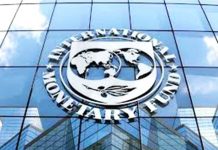Ghana is a wealthy country for the fact that the GDP in the Ashanti region alone is estimated to be in the region of US$250 to US$300 billion. This means that the economic, social and environmental problems we face today are not about money.
This problem is a short term one for which, we as a country, need a medium and long term strategy with prudent implementation.
Most importantly, we need to improve the investment environment to create preconditions for the private sector which has a critical role in economic development. There is no substitute for a vigorous private sector mobilising the resources and energies of the people of the developing countries.
Our macro-economic structure should be subject to change; it is impossible to have an investment project that produces a high rate of return in a bad policy environment. Introduction of new investment strategies in support of developmental programs and policies of structural reforms are very crucial.
We have to focus on macroeconomic policies together with institutional reforms at the country level. Policy frameworks that could achieve sustainable growth and obtain external finance and support that require a firm commitment are required.
The reform needs to be flexible and easy to modify any policy reforms toward desirable structural change to develop appropriate programmes. This reform has transitional costs that will affect the vulnerable people.
Furthermore, we need trade policies to increase competitiveness and move them towards an outward-oriented trade, trade strategy that would improve performance and help them achieve high rates of growth and complementary policies to improve resources allocation.
Over the years, our economic policies aim at macroeconomic stability and lower fiscal deficits through reducing public expenditure and increase in taxation but have neglected increased savings and improved resources allocation which are essential but have serious social implications.
Healthy growth of national income, alleviation of poverty, and reduction of income inequality, and efficient industrialization are keys to economic policy. Henceforth, growth and trade will allow more efficient employment of the productive work forces and consumers will ultimately benefit through lower price and variety of product and services.
We need more accountability, rule of law and policy with a clear emphasis on poverty and education: – holistic approach to development involves social safety net, poverty, health, education, environment, rural development and gender equality.
For this to be achieved, building consensus domestically and consulting with as many different civil society and private sector actors as possible, the calling for regular assessment of all the stakeholders of actual development outcome to ensure accountability towards meeting the goals set out cannot be ignored.
Again, the emphasis is on strategy that is stakeholders’ driven, transparently with broad and even popular participation. Yet the strategy is also clearly linked with the developmental goals, it will give the people the opportunity, empowerment and security.
This strategy will provide security for the poor by reducing their vulnerability to economic problems (shock) through various social instruments.
In order to make progress on social and economic development, it is essential that a firm policy for economic growth, sustainable development and poverty reduction, sound, accountable and transparent institutions, macroeconomic stability, increase fiscal transparency is important to tackle corruption, boost private sector development to attract investment, a credible legal framework and elimination of all impediments to private investment are policies needed.
Furthermore, I suggest that political and economic interests controlling our institutions and their policies should be reviewed and all policies that are damaging the poor and private enterprises, should be redesigned.
Limited and weak structures of our institution need a change for popular participation and enhancing democratic decision making. The idea is to widen the scope of this potential and to intensify its content towards the transformation of our institutions.
“When a political party wins power it forms a government, and it is no longer a political party, because what they do is not only on the basis of their right to do so but as part of their obligation to the security of their country and its people.
This security assurance to their people is being made in the interest of Ghanaian economy security rather than the party or the individual interest and security”.
Today’s politicians are like cancer cells that attempt to hide from the body’s immune system by masking themselves as healthy cells, political agents attempt to conceal themselves from society’s immune system by hiding as agents of health politicians.
They have become so skilled in their deception that we now find our economic and political leaders committed to policies that serve them at the expense of the healthy body.
To restore health, we must recognise the diseased cells for what they are and either surgically remove them or deprive them of access to the body’s nutrients.
In a true government, democratically accountable governments provide an appropriate framework of rules within which people, communities, entrepreneurs and responsible investors, self-organise to meet their economic needs in socially and environmentally responsible ways.
We see economic power becoming increasingly concentrated and delinked from public accountability. The power holders are rewriting the rules to secure themselves from the financial gains of their decisions while passing the cost to the poor innocent people.
I would like to plead with fellow politicians to be accountable to their communities. We must always remember that we come from a community. More often than not, we begged them for their votes to put us where we are today making it imperative on us to serve our community.
By Dr. Edward Kwadwo Yeboah, Kumasi
*The Writer is an Economic Development Consultant









